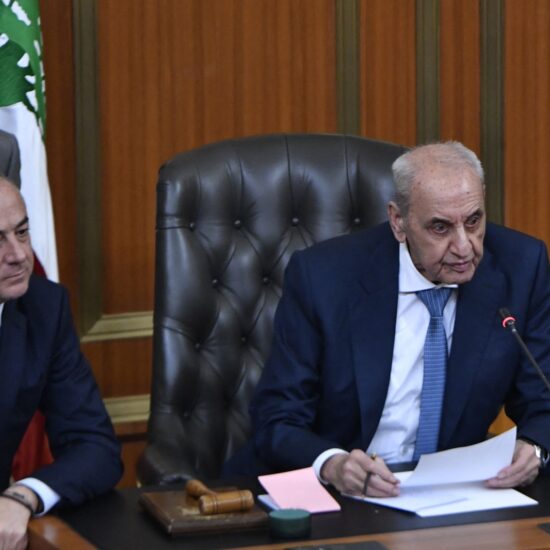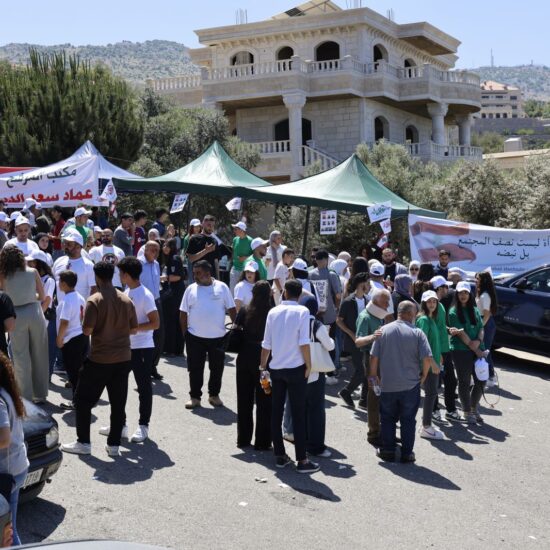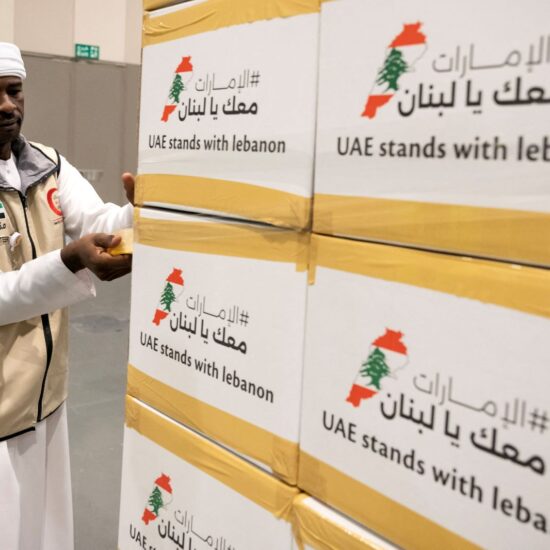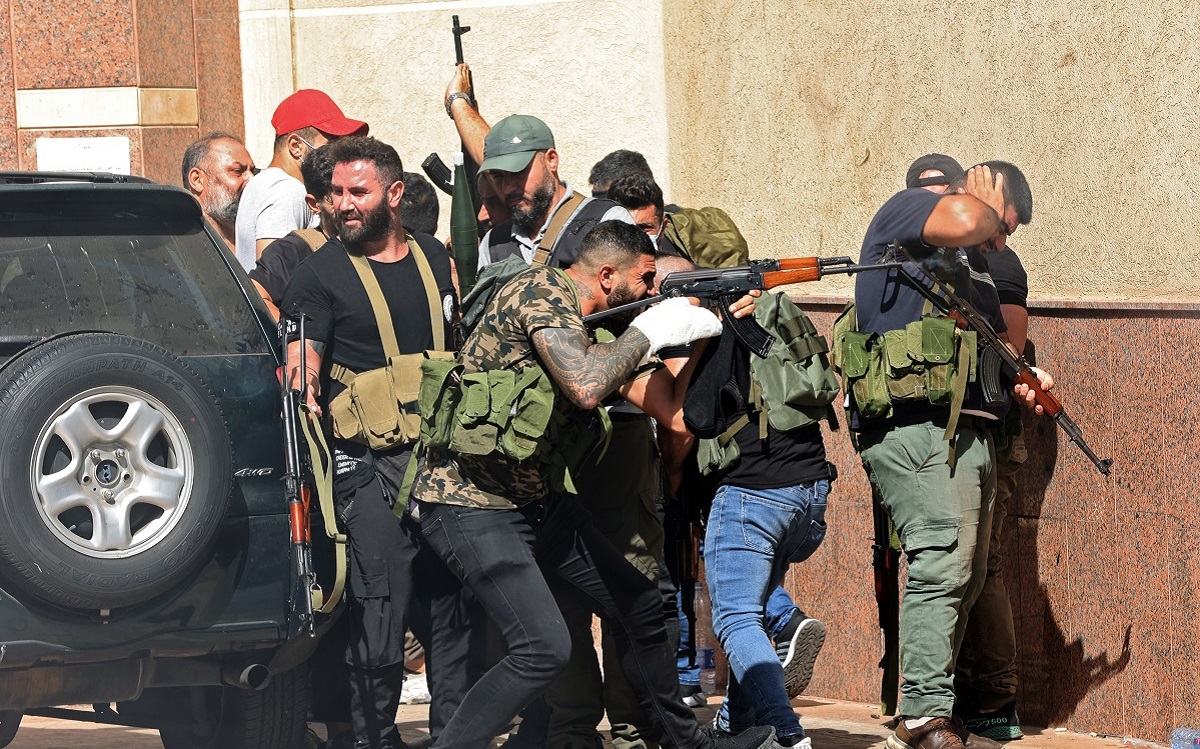
The sound of gunshots and explosions filled the streets of Beirut on Thursday as armed clashes erupted after a protest called by Hezbollah and the Amal Movement which sought the removal of the Beirut blast chief investigator Tarek Bitar.
Both the Amal Movement and Hezbollah have attacked Bitar and accused him of heading a politicized investigation in the port explosion, with the secretary-general of the Party of God Hassan Nasrallah slamming the judge in his Monday evening speech.
Moreover, the two Shiite parties together with the Maronite Christian Marada party have been pressuring the cabinet into making a decision to remove Bitar from the probe, as several of their members have been charged in the inquiry.
Beyond the violence that broke out on the streets of Beirut, Lebanon’s newly formed government is also at stake, with Amal, Hezbollah and Marada having blocked the cabinet meetings, threatening to resign over the Bitar affair.
Lebanon’s new prime minister, Najib Mikati, is left with few options as to what he can do about the situation surrounding the investigation, analysts say.
“Mikati has two options,” Bashar al-Halabi, a Middle East analyst and activist, told NOW. “The first option is to cave to the will of Hezbollah and take this unlawful and illegal step of trying to sack Bitar…Or the other option is for Mikati to basically resign and not sign off on the sacking of Bitar and the ending of the Beirut Port investigation.”
However, both options hold serious consequences for Lebanon which is already on the verge of complete collapse, with a political class that has bickered for 13 months and switched three prime ministers until it finally formed a cabinet less than a month ago.
Blood on the streets
The probe itself was suspended for a few days. Amal MPs and former minister Ghazi Zeaiter and Ali Hassan Khalil, as well as Marada member and former minister Youssef Fenianos and Future Movement MP Nohad el Mashnouk had been summoned for integration in the blast case by Bitar.
Zeaiter, Hassan Khalil as well as Mashnouk filed requests for Bitar’s removal at the Court of Cassation, Lebanon’s supreme court, bringing a series of summons for questioning to a halt.
During Tuesday’s cabinet session, Hezbollah, the Amal Movement and the Marada Movement ministers threatened that they would leave the cabinet if Bitar wasn’t fired from the Beirut blast investigation. President Michel Aoun adjourned the cabinet session and called for a new one the next day, but that was also canceled indefinitely because of the disagreements.
Hezbollah, Amal and Marada announced on Wednesday that they would hold a protest in front of the Ministry of Justice in Beirut starting at 11 am, to call for Bitar’s dismissal.
But as the rally was underway in front of the Justice Palace on Thursday morning, the supreme court rejected the cases against Bitar putting the probe back on track.
Gunshots were soon heard in the Tayouneh Roundabout, an area between the Christian Ain el-Remmaneh and Shiite Chiyeh which marked the border between the two opposing sides during the civil war. The gunfire escalated, killing at least 6 people, wounding scores and leading to hundreds of residents evacuating the area for fear of further unrest.
Hezbollah and Amal released a joint statement saying that their supporters were fired upon first by supporters of Christian Lebanese Forces.
Today, we know that there is a main constituency in the country that runs the country in one way or another, which is Hezbollah and their sidekick Amal [Movement]. They feel threatened by the probe.
“At 10:45, demonstrators were peacefully heading to the Palace of Justice to denounce the politicization of the investigation into the Beirut Port blast,” a statement by Hezbollah and Amal read soon after the fighting began. “Upon their arrival to Tayouneh, snipers on rooftops opened fire on protesters, leading to the fall of martyrs and the injury of many.”
In response to the shooting, members of Hezbollah and Amal allegedly brandished their own weapons and started shooting back, with several missiles being fired as well.
The Lebanese Army soon intervened and said that they would shoot any armed protester that was in Tayouneh.
According to Halabi, the fighting should come as little surprise since Lebanon has often seen groups use violence when they are up against a wall.
“We see that at every juncture and at every moment where this political regime reaches a bottleneck situation when it reaches a dead-end where one of its constituencies feels ultimately threatened or cornered or in trouble, we know for a fact that nothing really turns the tables in the country, nothing really shifts the tide besides bloodshed and what we are seeing today is a representation of that,” he explained.
“Today, we know that there is a main constituency in the country that runs the country in one way or another, which is Hezbollah and their sidekick Amal [Movement]. They feel threatened by the probe.”
He added that Hezbollah and Amal are sending a clear message with the fighting that “it’s either bloodshed or you cave to our will and to our demand in ending the probe.”
Despite the political class’s opposition to the probe, which has seen several current and former politicians called in for questioning, Judge Bitar, who took up the lead of the investigation after Fadi Sawan was removed in January, has, for the most part, widespread support by the public and the international community, making the decision to remove him and end the probe a kind of “tug-of-war” that is “being played out in the streets of Beirut.”
However, Mikati has been supportive of the investigation, announcing that Bitar’s security has been boosted due to the recent threats.
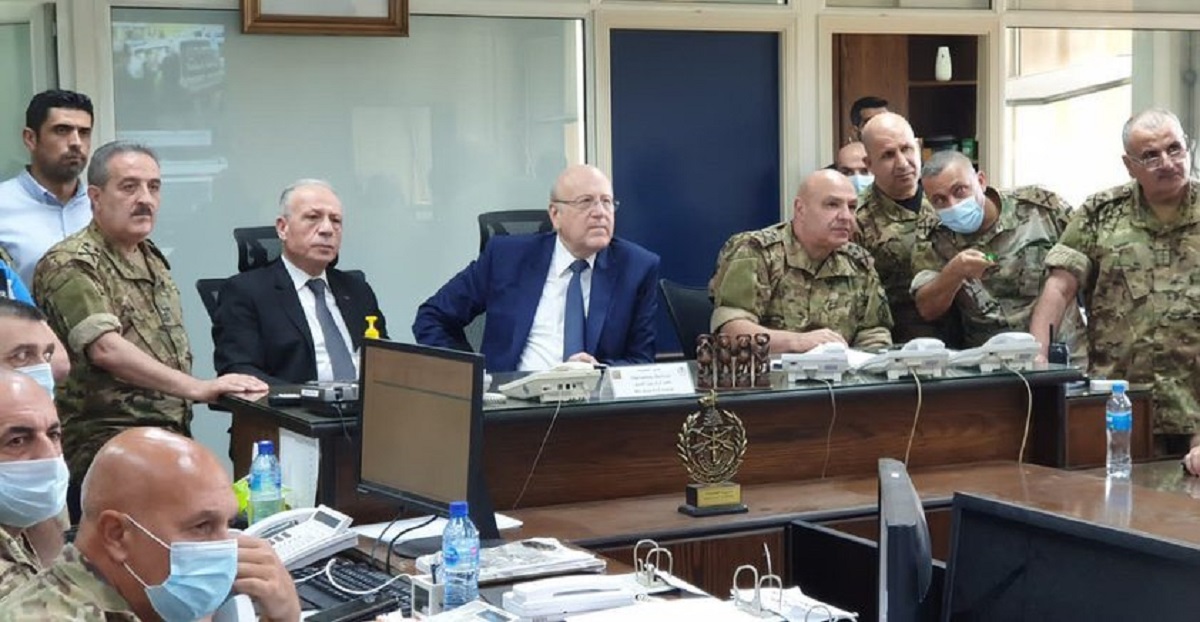
‘Between a rock and a hard place’
When Mikati announced that he had successfully formed a government after a 13-month deadlock, many deemed his government to be merely a placeholder until the 2022 parliamentary elections as it was unlikely that he would take any major decisions when they could simply be reversed by the next government.
Instead, Hezbollah, which has enjoyed increased influence in the country as Lebanon has slipped further and further into crisis, and its ally Amal seem determined to force Mikati’s hand with the two parties threatening to topple the government if their demands are not met.
While according to Lebanon’s constitution, a third plus one members of the government need to resign for the government to fall, Halabi notes that Hezbollah and Amal founded a precedent in 2011, when the parties resigned in protest to the Lebanese government’s support for the Special Tribunal for Lebanon’s investigation into the Rafik Hariri assassination in 2005.
In 2011, the Free Patriotic Movement ministers also resigned, thus forming a blocking third and bringing down Saad Hariri’s cabinet. But there is always a way, Halabi explains. Although it is not quite constitutional, Hezbollah and Amal claim that if the government does not have Shiite ministers that are actually representative of the community, the government is not legitimate.
“At the end of the day, they named Mikati and Mikati cut a deal with them in order to be a prime minister and obviously Mikati cannot rule and cannot govern in case they exit the government,” he added.
After Thursday’s fighting it was clear that Mikati’s government stood no chance from the start and lacked the independence that the prime minister claimed it did, history lecturer at the American University of Beirut Makram Rabah told NOW.
“This is a confirmation that the government of Mikati was dead at birth in the sense that he refrained from taking any real action in protecting the Lebanese judiciary, particularly Judge Bitar who is investigating the Beirut Blast,” Rabah explained.
“More importantly, it shows that all of this talk about an independent and specialized cabinet, such as the one that Mikati claims to lead, is a red herring and a fallacy because, at the end of the day, whoever controls Lebanon is Nasrallah and his Iranian arsenal of weapons in addition to the unholy alliance between Hezbollah and the corrupt political elite.”
Halabi shared Rabah’s criticism of Mikati, saying that the prime minister should have “known better when he decided to take this job that the situation in the country is explosive” and he should have “known better that at the first turn or at the first corner after his government takes off, his government is going to face many problems” since he was going to have to deal with “several explosive portfolios or dossiers” with the port investigation being one of them.
It shows that all of this talk about an independent and specialized cabinet, such as the one that Mikati claims to lead, is a red herring and a fallacy because, at the end of the day, whoever controls Lebanon is Nasrallah and his Iranian arsenal of weapons in addition to the unholy alliance between Hezbollah and the corrupt political elite.
Now, posed with either caving to Hezbollah and Amal’s demands or resigning as prime minister, both options put Lebanon in an uncomfortable position both at home and abroad.
“It’s very complicated and it requires basically a legal precedent in Lebanon if it happens because it is going to completely nullify the principle of separation of powers in a so-called democracy,” Halabi said of the option to remove Bitar and end the investigation.
In addition to this, Mikati would need the support of former Prime Minister Saad Hariri, leader of the Druze Progressive Socialist Party Walid Joumblatt and President Michel Aoun so that they could, more successfully, shut down the investigation.
“I think that they are stuck in-between a rock and a hard place because if Bitar is sacked, this is going to put them at odds with the international community,” Halabi stated.
“Whether Bitar is sacked or Mikati resigns, the political establishment will be put at odds with the international community. The difference is, if the government resigns, then everyone is screwed in terms of dealing with the international community.”
If Lebanon’s relationship with the international community is put into question, it would put the much-needed aid money in jeopardy especially since French President Emmanuel Macron “is one of the patrons of this government” and the resignation of the government after it was just formed would make the United Stated “really pissed.”
Since Mikati has not been heavily implicated in the Beirut Blast investigation, it would be easy for him to resign and tell the political establishment that it was their problem to deal with and not his.
However, because Lebanon’s political parties are so intertwined with one another and many deals are struck behind closed doors or, sometimes, even before any major decisions are made, Mikati may not be in a position to resign of his own accord.
Following the October 17 uprising in 2019, Hariri resigned, angering Hezbollah’s secretary-general, Hassan Nasrallah, and seemingly irreparably damaged his relationship with Aoun.
“It’s not your own choice to make sometimes and I think Mikati is in that situation right now,” Halabi said.
Nicholas Frakes is a multimedia journalist with @NOW_leb. He tweets @nicfrakesjourno.





